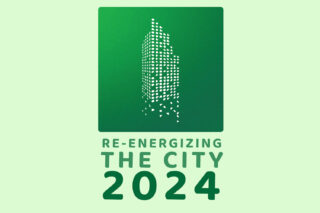Centering the “Community” in Community Engagement

*This event will be occurring as a live webinar. Registrants will be emailed a link to access the program.*
Perspectives from Around the Country
What constitutes community engagement and why should architects, designers, planners, and developers strive to make it part of projects at all scales? This panel discussion brings together four different perspectives from around the country to delve into what successful community engagement processes can look like and how to make them a part of standard practice. The program will focus on building coalitions, adhering to principles of transparency and inclusion, and understanding historic racial contexts, all while acknowledging that each project is different, has different stakeholders, and different measures of success.
Community-based design is a term that far too often elicits groans from owners, architects, and community members alike. It is often seen as an antagonistic forum through which owners offer up additional services that hurt the bottom line, architects lose control over their creative freedom, and community members are offered empty promises of an improved project.
What if these assumptions were all wrong and community-based design, when implemented well, could be a driver for better design with more equitable benefits for developers and residents alike, all while improving the neighborhood where a project is located?
Moderator:
Paola Aguirre, Founder, Borderless Studio
Panelists:
Elizabeth Timme, Founder and Co-Executive Director, LA Más
Nisha Baliga, AICP, Co-Executive Director, Hester Street
Margaret Sullivan, Principal, Margaret Sullivan Studio
About the speakers:
Paola Aguirre is the founder of Borderless, an urban design and research practice based in Chicago. Aguirre was trained as an architect and urban designer, and her professional experience includes working with government, universities and architecture/urban design offices both in Mexico and the United States. She is the founder of Borderless Workshop, a research and collaborative platform focused on rethinking cities along the US-Mexico border region. Aguirre currently teaches at the School of the Art Institute of Chicago and has taught at Washington University in St. Louis and Archeworks.
Elizabeth Timme is the founder and co-Executive Director of LA Más, a non-profit that designs and builds initiatives that promote neighborhood resiliency and elevate the agency of working-class communities of color. A notable recent project is their Backyard Homes program, where they are designing and building Section 8 housing properties using backyard homes or ADUs. Timme has been named an Emerging Voice by the Architectural League, a Woman of the Year by Los Angeles Magazine, a Young Gun of the Year by Curbed, a recipient of the Vanguard Big Idea Challenge award by Next City Vanguard 2019, and a Civic Leader by Exhibit Columbus Washington. She has taught at Cal Poly Pomona, Woodbury University, and Harvard University. When not on juries or teaching, Timme writes in journals and publications like Manifest Journal, Log, and Tablula Plena. Timme holds a master’s degree in architecture from Harvard’s Graduate School of Design and a bachelor’s degree in architecture from the University of Southern California.
Nisha Baliga has over 15 years of experience working with public agencies, community organizations, cities, and private institutions to create and implement innovative solutions to urban planning issues. Since joining Hester Street in 2015, Baliga has led multiple large-scale projects at the intersection of equity and climate adaptation, resiliency, arts and culture, health access, open space, and urban planning, including CreateNYC: A Cultural Plan for all New Yorkers, Cities RISE, and Take Care New York 2024. Before Hester Street, Baliga spent a decade working in the Urban Design and Planning Studio at Beyer Blinder Belle, which included a two-year stint in Arusha, Tanzania. She is a member of the American Planning Association, the American Institute of Certified Planners, and Next City’s Newark Vanguard cohort, and was a 2019 Leadership Education for Asian Pacifics (LEAP) Impact participant. Baliga spent her childhood in India and holds a master’s degrees in Urban Planning from Columbia University.
Margaret Sullivan is the principal of Margaret Sullivan Studio (MSS), a national leader in visioning, programming, and strategic planning for public libraries, achieved by developing a community-centric, user-centric, outcomes-based approach to the community engagement process. The process embeds listening, learning, and makes the community’s and community leader’s aspirations tangible. MSS utilizes a variety of community engagement techniques that are designed to be fun, participatory, and asset-based to result in architecture that is rooted in the vision of its community.




